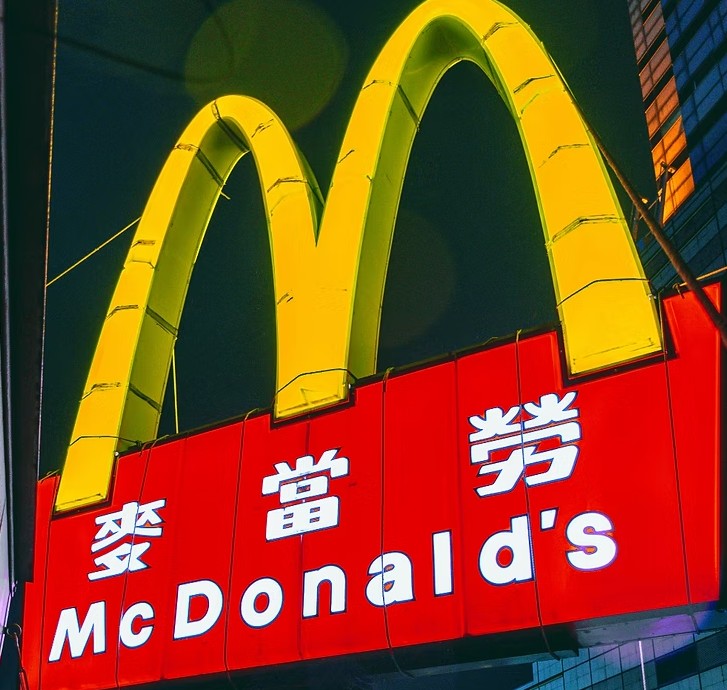|
Why Your Chinese Company Name Matters More Than You ThinkWhen McDonald’s quietly re-registered its China master franchise as “金拱门 (Jīn Gǒng Mén)” in 2017, the internet erupted. Many joked that it sounded like the name of a steel-furniture shop. Within hours, the company had to clarify that restaurants would continue using “麦当劳.” The incident became a meme, but it highlighted something critically important: in China, your Chinese name becomes the first signal of credibility—legally, culturally, and commercially. This article explains, in eight focused insights, why a three-character Chinese name is now as essential as your product specifications or compliance documents, and how to avoid becoming a long-term cautionary example.
1. Literal Translation No Longer Works — Strategic Naming Should Guide You Simply copying the sound of an English name into Chinese often results in awkward, meaningless, or unprotectable combinations. Modern Chinese brand naming should follow a clear strategy: • Phonetic Anchoring: Maintain a subtle sound link so consumers can intuitively associate the Chinese name with the original brand. Names that blend these elements feel natural, carry value, and can be defended legally. Names that miss these principles often struggle to build traction for years. 2. Legal Reality: China Is First-to-File, Not First-to-Fame Global brand recognition does not guarantee legal protection in China. Two independent systems control your identity: • State Administration for Market Regulation (SMAR) approves company names for registration. These systems do not communicate with each other. Approval of your company name does not protect your trademark. If another party files your Chinese name first—even in a single category like apparel, electronics, or online retail—your e-commerce stores, paid ads, and product listings can be blocked immediately. More detailed guidance: • File trademarks before marketing announcements. 3. Cultural Traps: Four Risks Foreign Firms Overlook • Dialect Conflicts: A name may sound fine in Mandarin but problematic in Cantonese, Min Nan, Hokkien, or Shanghainese. How the Best Buy Name Worked Against the Brand Best Buy – “百思买 (Bǎi Sī Mǎi)” How the Coca-Cola Name Supported Explosive Growth Coca-Cola – “可口可乐 (Kěkǒu Kělè)” 4. Consumer Psychology: Short Names Win Research by Tencent and Nielsen shows that Chinese consumers recognize characters almost twice as fast as Latin letters. After four characters, recall drops sharply, which is why three-character names dominate among successful foreign brands. If a taxi driver cannot repeat your Chinese name after one try, it is too long. 5. Digital Reality: If It Cannot Be Typed, It Cannot Be Found Because nearly all Chinese users input characters through pinyin: • Rare characters never appear in predictive text. Your Chinese name becomes the foundation of your SEO, social search, and online visibility. 6. Internal Alignment: Even the CEO Needs a Chinese Name At the 2025 CIIE, most Fortune 500 CEOs wore badges displaying their Chinese names. Reasons include: • It humanizes leadership. A well-crafted Chinese name strengthens trust both internally and externally. 7. Metrics: What Success Looks Like Over Time Strong Chinese names consistently produce: • Higher trademark defensibility 8. Choosing a Chinese Name Requires Expertise, Research, and Legal Precision The best Chinese names combine legal protection, cultural resonance, digital visibility, and consumer psychology. A strong name reflects not only brand identity but also how well a company understands the expectations, habits, and linguistic sensitivities of the Chinese market. Achieving this requires far more than creativity. It demands structured market research, linguistic testing across regions, trademark screening, competitive analysis, semantic evaluation, and consumer validation. On top of this, companies must navigate the additional complexity of finding a name that is legally available, free of conflicts with existing trademarks, and not prohibited under Chinese naming regulations. Many otherwise perfect names cannot be used because they overlap with a previously registered mark, include restricted terminology such as “中国,” “国家,” or “国际,” or violate rules governing sensitive, political, or misleading language. These constraints eliminate thousands of potential combinations before creative work even begins. Many foreign firms underestimate the depth of this process and choose agencies that focus only on translation or visual branding, rather than teams experienced in Chinese legal compliance, naming conventions, prohibited-character rules, and cross-dialect evaluation. Selecting the right service provider—one who understands regulation, search behavior, character frequency, dialects, and brand positioning—can save months of delay and prevent costly trademark disputes. A well-crafted Chinese name ultimately compresses trust, clarity, and recognition into three characters that consumers can understand and remember instantly. Need help with a Chinese company name? We help foreign firms complete compliant Chinese naming, company registration, and trademark protection.
|





